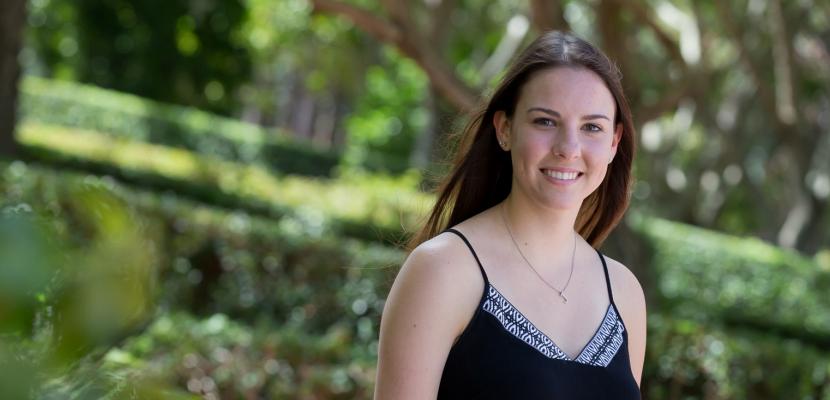
Although she is several years away from graduating with her doctorate, Joan Cassimatis - the newest recipient of Bond University’s Indigenous Medical Scholarship - already knows one thing for certain about her future career path: she wants to dedicate her life to improving health and education outcomes of disadvantaged Indigenous children in rural and remote Australia.
Since commencing her undergraduate degree in law and biomedical science at Bond University in 2016 – for which she was also awarded a prestigious Excellence scholarship – the impressive 20-year-old has taken part in missions to some of the most far-flung corners of the country.
One such mission was “The Kununurra Project”, a student-led initiative of the Bond University Student Philanthropy Council, which works with Indigenous youth and the broader community in the remote town of Kununurra, located at the eastern extremity of the Kimberley region in Western Australia.
In its four-year lifespan, the project has successfully utilised education and recreational activities to build a relationship with the Kununurra community.
“These trips have really opened my eyes to serious health issues faced by Indigenous people in rural and remote areas, particularly children, and I want to do something to bring about positive change,” said Joan, who started attending these missions when she was 18 years old.
“Access to health care and basic personal hygiene can be very poor in places like this, and there is also a drug and alcohol abuse problem throughout parts of rural and remote Western Australia.
“In some towns there are limited medical practitioners available to treat people, so they need more qualified medical practitioners - I’d love to be able to apply the skills and knowledge I am already learning in this part of our country.
“I love Kununurra and over the years have made great connections with the kids and the people in the community, so I definitely would love to go back and continue to work in this town.”
While treatment of young people and the wider community will be an essential aspect of her career in medicine, Joan is already thinking of the bigger picture. She is extremely passionate about early education and intervention, which she believes is the key to ultimately improving health outcomes in communities like Kununurra.
“Once I’ve completed my degree, I’d love to bring about real, positive change to contribute towards reconciliation and make a difference in Kununurra, and other rural and remote areas facing similar issues,” she said.
Dr Shannon Springer, Discipline Lead for Indigenous Health at Bond University, said the University started the medical scholarship program for Aboriginal and Torres Strait Island students three years ago, in an effort to positively influence the number of Indigenous doctors working in Australia.
“We currently have four students that identify as Indigenous participating in our medical program at Bond,” he said.
“All medical students are required to develop emerging skills in cultural awareness and Indigenous health education to work effectively in the cross-cultural context to improve better access to care.
“Bond offers a number of Indigenous health placements, where students can apply what they learn in a real-world, clinical context.
“Joan was a very strong applicant with a high academic ability and an unwavering desire to serve the Aboriginal and Torres Strait Islander community, which are really important attributes for this scholarship.”
Dr Springer said there was a large disproportion of doctors working in urban tertiary hospitals, adding that Joan’s plans to work in areas where there was a demand was precisely what Australian communities needed.
“Less than half a per cent of registered medical doctors in the country identify as Aboriginal or Torres Strait Islander, yet Indigenous people make up almost three per cent of the Australian population,” he said.
“The ultimate goal of the Australian Indigenous Doctors’ Association is to reach what is commonly known as ‘population parity’, which in this case means having Indigenous doctors making up three per cent of the total doctor workforce.
“Having more Indigenous doctors will strengthen and enrich the profession offering culturally appropriate services that will improve access to quality care for all Australians.
“We have a way to go to reaching population parity and Bond University wants to do its part in supporting the Australian medical community to achieve this goal.
“Our Indigenous medical program and this scholarship are part of a university-wide endeavour to enrich Bond University with Indigenous educational opportunities.”